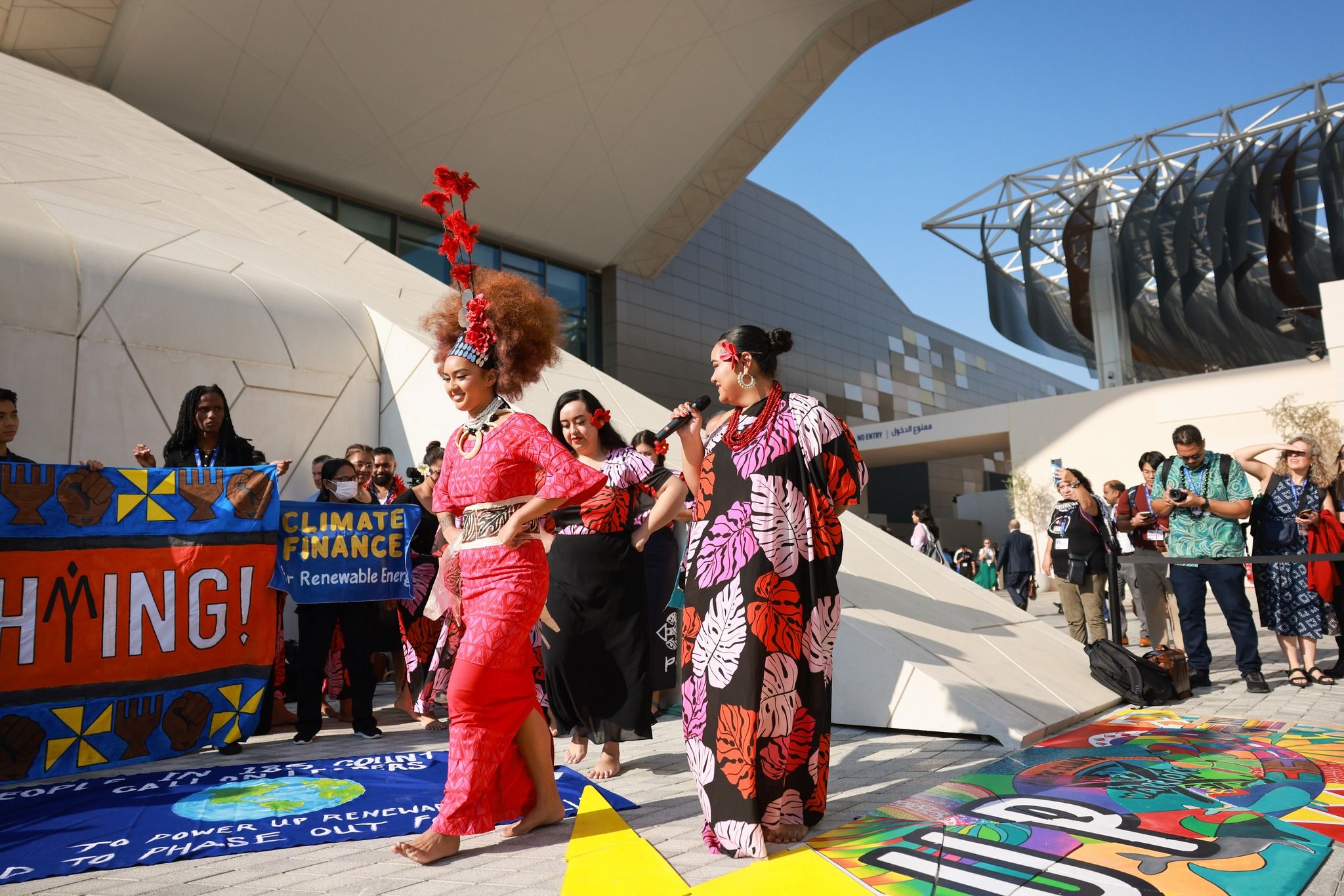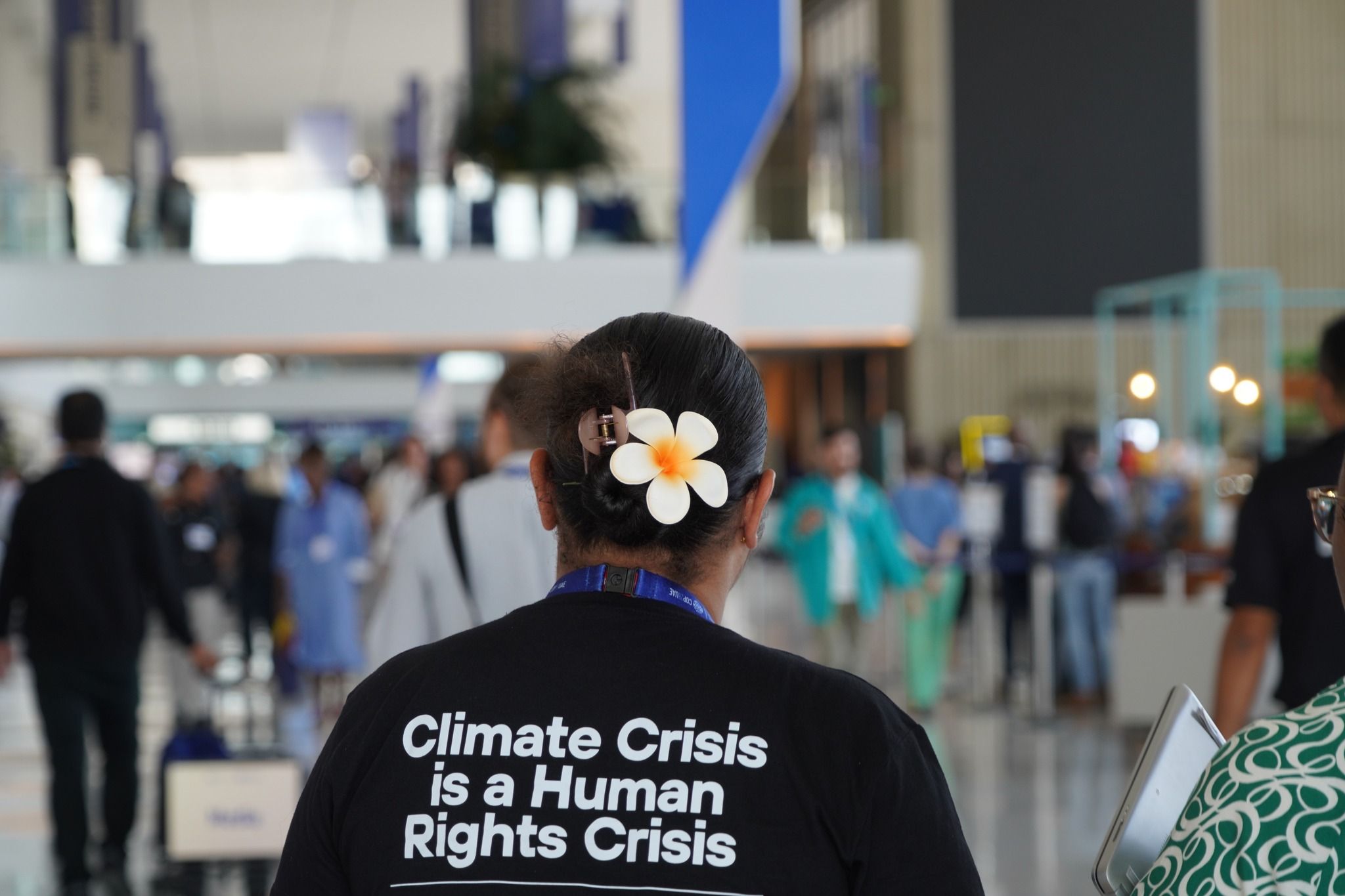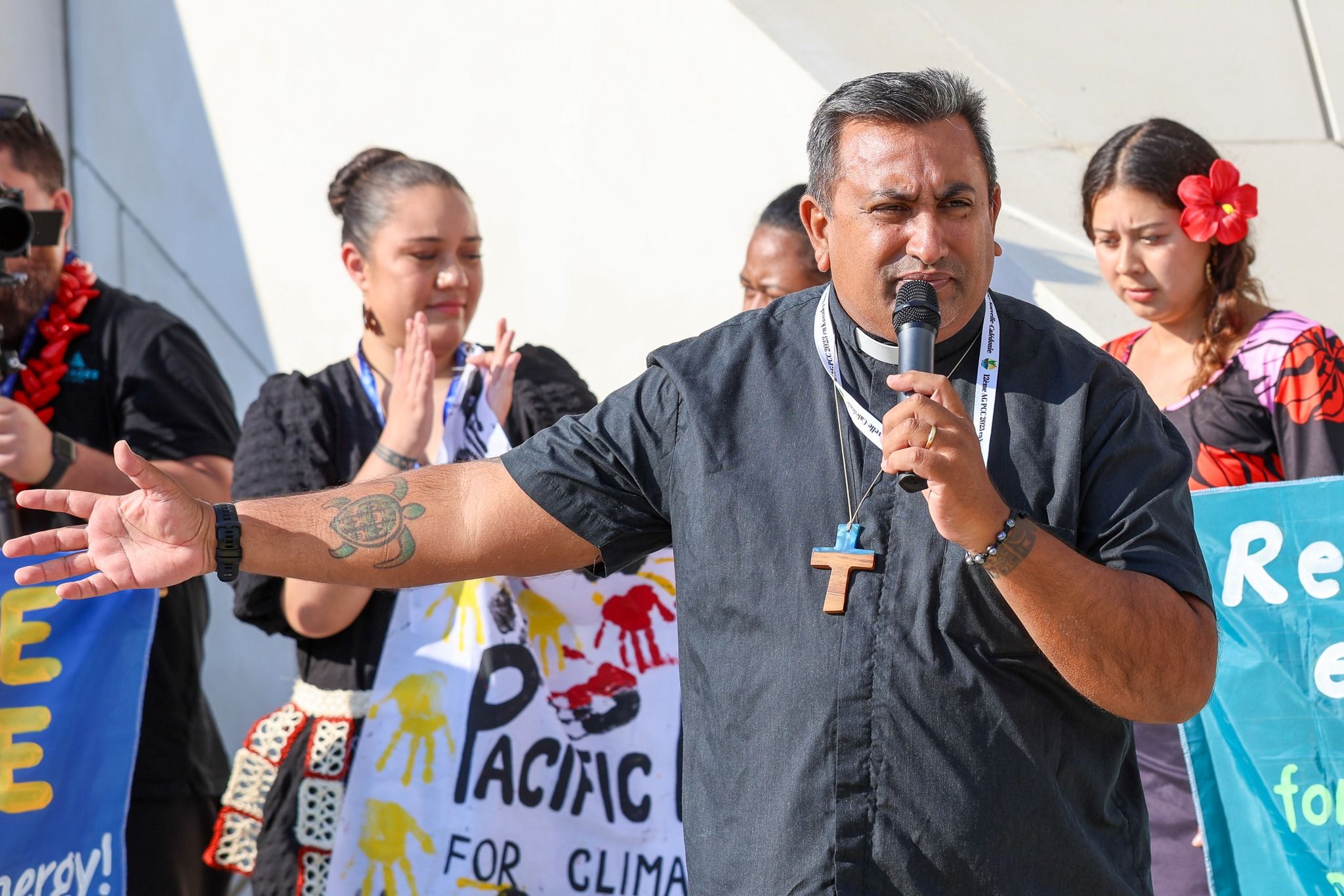

Pacific communities are advocating for the environment at this year's United Nations climate summit.
Photo/ SPREP Facebook page
‘This is our defining moment’: Pacific leaders urge global leaders to halt climate change
Pacific leaders want big-emitting nations to be held responsible for the harm caused by climate change.



Moana Pasifika end Lautoka curse to win 'Battle of the Pacific'


Budget relief buys time for Ōtara-Papatoetoe, but pressures remain


Moana Pasifika end Lautoka curse to win 'Battle of the Pacific'

Pacific leaders are making their voices heard on climate issues at COP 28, the United Nations’ climate conference.
Climate change negotiations wrap up this week, with top issues including transitioning away from the use of fossil fuels, disaster finance for climate emergencies, and efforts to cap global warming at 1.5 degrees.
In his keynote address, Niue premier Dalton Tagelagi says the voices of the Pacific need to be heard.
“We have to be frank, we have to be forceful, because we're sick and tired of being ‘flown’ into these forums year in, year out. It's not easy for us from the Pacific to travel all this way, it takes a toll on our lives as well in trying to advocate or have our voice heard, and I said it clearly at this COP, this is our defining moment.”

Climate advocates, including Miss Samoa Moemoana Schwenke and climate action warrior Suluafi Brianna Fruean are also at COP 28. Photo/SPREP Facebook page
The Pacific Islands Forum has established the Pacific Resilience Facility, an organisation to house international funding for easier access after a climate disaster. Sixty million has already been pledged towards the $500 million target, mostly from Saudi Arabia.
Speaking at the Moana Blue Pacific Pavilion, Pacific Forum Chair Mark Brown says it’s a stop- gap measure while the world works on reducing emissions.
“Our focus has to be centred on resilience and adaptation to protect ourselves while the rest of the world tries to achieve its carbon reduction targets to try and stabilise the 1.5 degrees.
“The Pacific Resilience Facility is not a magic bullet for us, all it's going to do is buy us time. It's a facility for financing that targets specific needs of Pacific countries.”

SPREP Facebook page
Meanwhile, Niue has launched their own initiative to mitigate climate change. Tagelagi says the Niue Oceans Conservation Commitment has attracted major investment from donors.
“The Oceans Conservation Commitment between the Niuean government and Tofia Niue will raise a few million dollars. It's a concept to move away from waiting for climate finance, this is all a homegrown initiative, supported by philanthropy organisations.”
The irony of holding an environmental conference in Dubai has raised eyebrows, as the United Arab Emirates is one of the top oil producing countries in the world. Tagelagi referred to this in his speech.
“This part of the world is still extracting oil and fossil fuel ,they’re one of the ones who [rely on it], but they have to find a way … We are the least emitters and yet we are the ones who suffer the consequences of severe tropical cyclones because of climate change.”
Religions, politics and the environment
Even religious organisations are part of the conversation. Pacific Conference of Churches spokesman Reverend James Bhagwan says they are negotiating with the Vatican to sign up to the Fossil Fuel Non Proliferation Treaty, and says they are making some major inroads with other countries.
“We've seen, with Columbia signing on, being the largest fossil fuel producer in Latin America, what can be done and the shift that can take place when political leaders, like our Pacific leaders, take the challenge of putting the political capital and the political will on the line.”

SPREP Facebook page
The impact on Pacific economies
Fishing zones are a major income earner for Pacific nations, sometimes contributing up to ten percent of a country’s gross domestic product. Forum Fisheries Agency Director General Dr Manu Tupou Roosen warns the global warming of the oceans is redirecting tuna stocks to cooler waters.
“The science is telling us climate change will affect abundance and distribution in quite significant ways. It will shift the tuna biomass from the Western Central Pacific Ocean, from our national jurisdictions, into the high seas, and if we stay on track with a high emissions scenario, we end up with 20% loss of that tuna biomass.”
Getting the attention of the highest court in the world
More than 100 countries have backed Vanuatu's attempt to seek accountability for the climate crisis at the International Court of Justice.
Pacific youth spokesperson Cynthia Houniuhi says they've staged three sideshows in Dubai to gauge support for the legal advisory.
“This is a very unique opportunity, we have a chance to save international law in a way that is reflective of our reality, to have that strong, progressive advisory opinion, we do need to be inclusive of everyone’s voices and concerns and interest in this.”
More than half of United Nations member states support Vanuatu’s call for the world’s highest court to give advice on states’ legal obligations around climate action. Although this is just an advisory opinion, countries could face consequences for causing harm to other nations.
The final talks of COP 28 wrap up on Tuesday in Dubai.